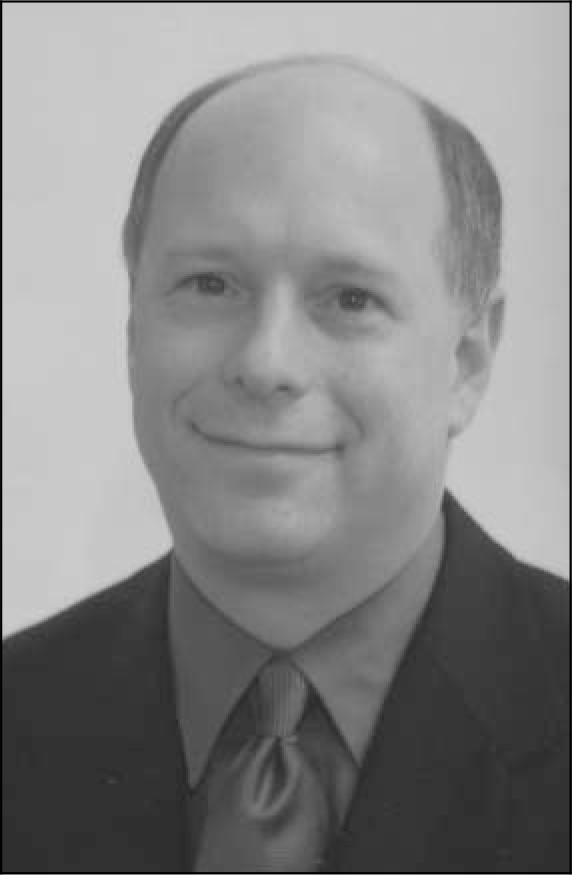Leslie Citrome is Director, Clinical Research and Evaluation Facility, Nathan S. Kline Institute for Psychiatric Research, and Professor of Psychiatry, New York University School of Medicine, USA. He trained at McGill and Columbia Universities, and at the New York University Medical Center. His special interests include the treatment of schizophrenia and bipolar disorder, and the management of aggressive and violent behaviour.
If you were not a psychiatrist, what would you do?
During and after high school I was strongly considering electrical engineering and mathematics. However, in the Province of Quebec where I grew up, there was an opportunity to enter medical school relatively early, and almost on impulse I made the decision to begin medical studies, without a clear idea of what I would actually do when I finished.
What has been the greatest impact of your profession on you personally?
It is difficult for human behaviour to surprise me, but it does happen sometimes.
Do you feel stigmatised by your profession?
In medical school there was clear bias against psychiatry as a proper medical specialty. Perceptions did not significantly improve until biological treatments became more mainstream and internists began using psychotropic medications with greater aplomb.
What are your interests outside of work?
Spending time with my wife (we have been married almost 25 years), 21-year-old daughter, and our two‘ middle-aged’ Papillon dogs. I am an avid philatelist, specialising in the revenue adhesives of Canada.
Who was your most influential trainer, and why?
In 1994 I started at the Nathan S. Kline Institute for Psychiatric Research, essentially as an apprentice to Jan Volavka, MD, PhD. His untiring efforts to teach me to think critically and logically took several years to sink in. I had come from two clinical and administrative jobs, and adopting the mindset of a researcher required a substantial paradigm shift. Jan taught me about the ins and outs of being a clinical trialist. Sometimes I catch myself unconsciously imitating some of his mannerisms.

What job gave you the most useful training experience?
I learnt to care for the severely mentally ill on the Psychiatric Intensive Care Unit at the FDA Veterans Affairs Hospital in Montrose, New York. This was my first job after completing my residency training.
Which publication has influenced you most?
Pope HG Jr, Lipinski JF Jr. Diagnosis in schizophrenia and manic-depressive illness: a reassessment of the specificity of ‘schizophrenic’ symptoms in the light of current research. Arch Gen Psychiatry 1978; 35: 811–28. That paper was influential in making me think about differential diagnosis and differential therapeutics.
How has the political environment influenced your work?
The economic woes of New York State have threatened the existence of the Institute on several past occasions. Explaining to politicians the value of our work has been key to our survival.
What part of your work gives you the most satisfaction?
I enjoy presenting information to other clinicians in a way that they can immediately use.
What do you least enjoy?
Having to tell patients and their families about prognosis and limitations of our current treatments.
What is the most promising opportunity facing the profession?
Personalised medicine holds hope for avoiding needless empirical trials of medications that won't work for an individual patient.
What is the greatest threat?
Lack of understanding among the lay public that mental disorders are biological in origin.
What single change would substantially improve quality of care?
More attention being placed on psychiatric disorders in undergraduate and postgraduate training programmes no matter if the student/trainee will be in general or specialty practice. The disorders are ubiquitous, chronic, and require life-long attention.
What conflict of interest do you encounter most often?
Persons who say they have no conflicts of interest.
What is the most important advice you could offer to a new trainee?
The evidence changes daily. Learn to appraise evidence using the formal philosophy, process, and tools of evidence-based medicine.
What are the main ethical problems that psychiatrists will face in the future?
Recognition that lack of insight impairs free-will decisions.
What is the role of the psychiatrist in rebuilding healthcare systems?
Psychiatrists need to partner with generalists and other specialties to ensure that mental disorders are not marginalised.
What single change to mental health legislation would you like to see?
Absolute and total equality in access and reimbursement for the assessment and treatment of mental disorders compared with other diseases.
What single area of psychiatric practice is most in need of development?
Teaching clinicians how to critically appraise claims of differential efficacy and tolerability in clinically meaningful ways.
What single area of psychiatric research should be given priority?
Understanding the pathogenesis of mental disorders and providing a means for primary prevention.
How would you like to be remembered?
The guy who talked about quantifying things in a clinically relevant manner.



eLetters
No eLetters have been published for this article.